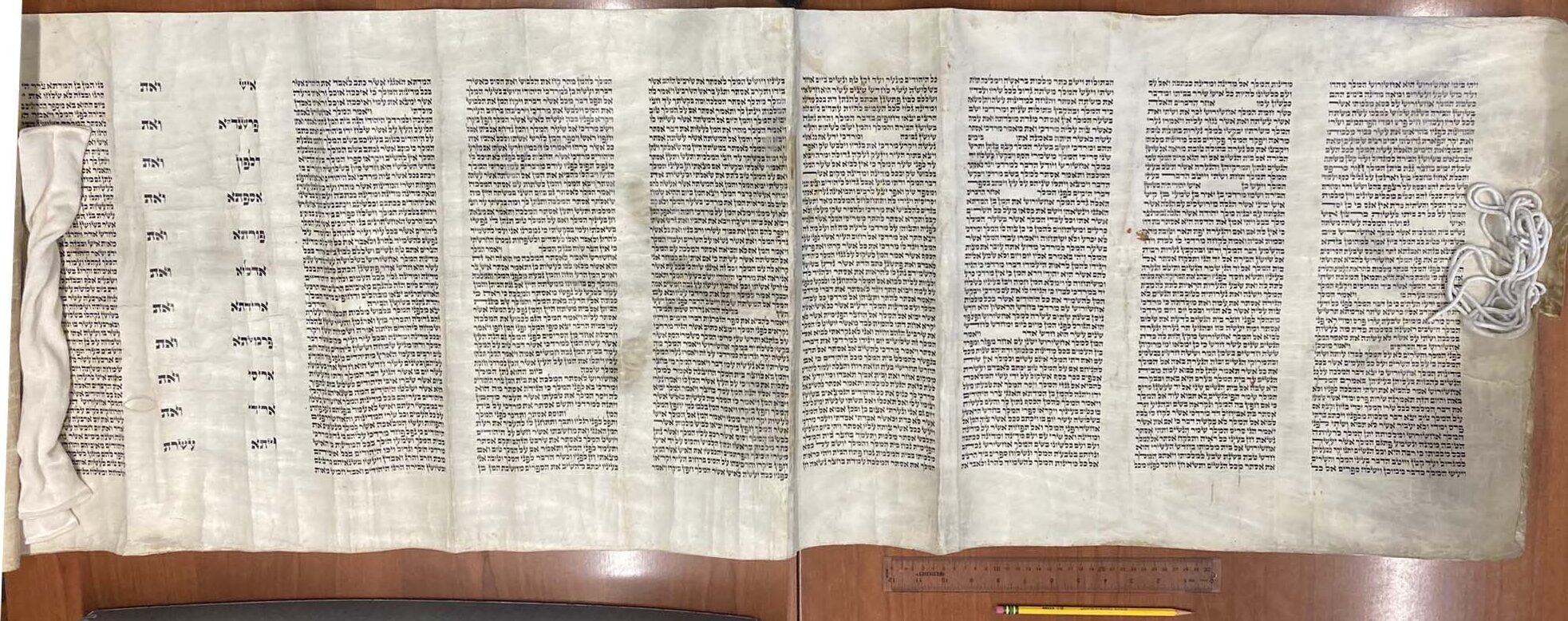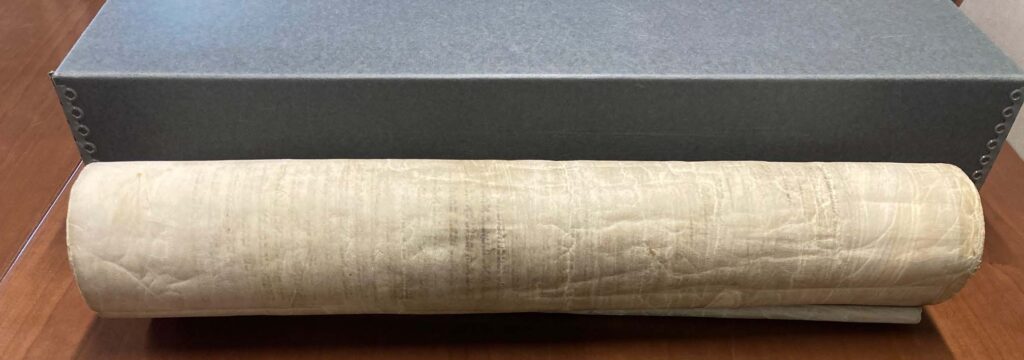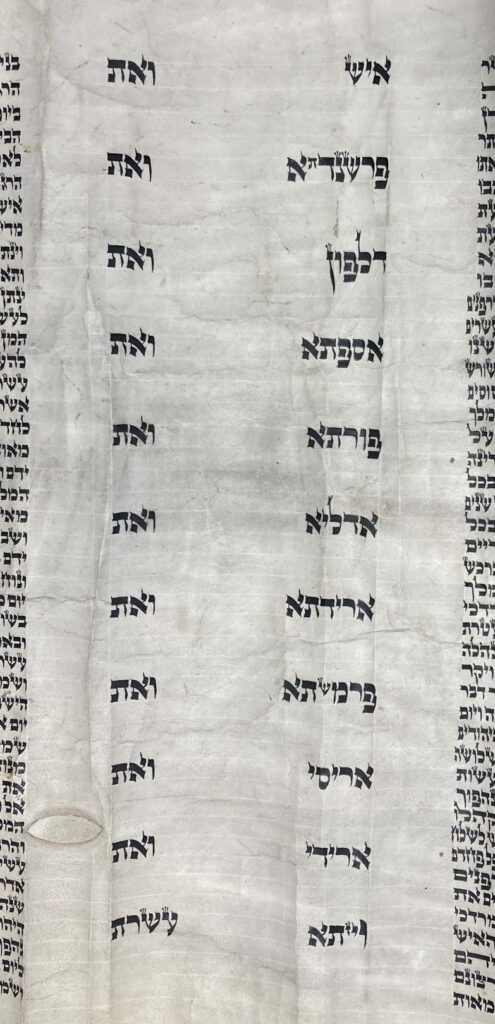Colorado College Special Collections has a Megillah, a Book of Esther, a sheepskin scroll handwritten in Hebrew, traditionally read aloud at Purim celebrations. (Purim falls on the 14th day of the Hebrew month of Adar; this year, 2022, that’s March 16.)

Haman, the villain of the story, has ten sons. Megillahs traditionally show the names of the sons in larger script. In English, the text is:
And Parshandatha,
and Dalphon,
and Aspatha,
and Poratha,
and Adalia,
and Aridatha,
and Parmashta,
and Arisai,
and Aridai,
and Vajezatha,
the ten sons of Haman.
Even if you don’t read Hebrew, you can see that one word (“and”) repeats. (Hebrew goes right-to-left.) In many families and congregations, the reader must get through this section all in one breath, or start the book over from the beginning.
Provenance: according to a handwritten note with our copy, it was purchased in Italy by Dr. Louis Barth of Grand Rapids, Michigan, probably around 1900, and acquired by Colorado College probably after 1932 (the year Dr. Barth died) and before 1940. Although the scroll looks and feels medieval, it probably dates to the 19th century.


